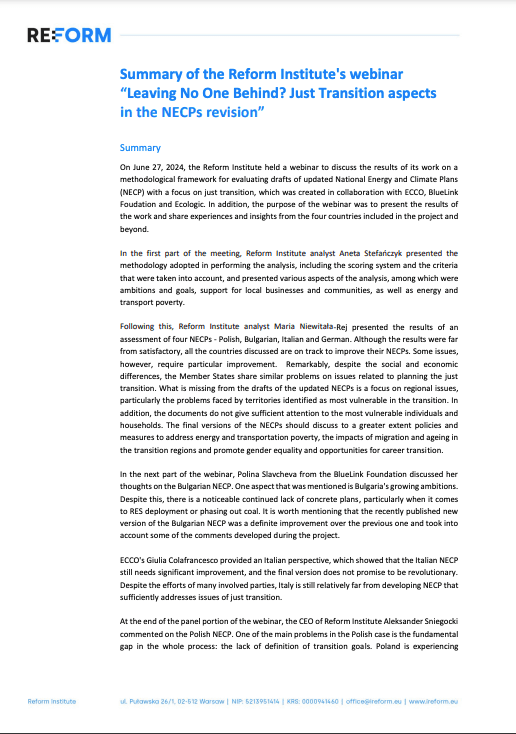Territorial and Distributional Aspects of Just Transition in the updated National Energy and Climate Plans

About the project
While the necessity of ambitious climate action is broadly recognised by the public across the EU, recent years have seen increasing concerns around the distribution of costs of transition both within societies and across different geographies. These two dimensions of the just transition – distributional and territorial – have therefore increased in prominence in EU politics since the publication of the first set of NECPs in 2019, with dedicated funding and governance mechanisms developed at the EU level. At the same time, both dimensions require a solid grounding in the broader climate and energy policy, which should be ensured by NECPs.
The 2024 update of NECPs should therefore put stronger emphasis on issues related to just transition. Given that the EU Member States were required to provide a draft of the update a year before the deadline for submission of the final version, there is an opportunity for the civil society to contribute to improvement of the drafts.
The purpose of our project implemented in cooperation with BlueLink Foundation, ECCO and Ecologic Institute is to facilitate this process by providing a methodological framework for the assessment of the updated NECPs from just transition perspective, and then apply it to the selected Plans.
Methodological report
The methodological framework described in the report can be used to evaluate both the contents of the documents and the procedures of their preparation. It constitutes a comprehensive checklist of good governance criteria, which should be fulfilled for proper integration of just transition policies and measures into NECPs. We encourage stakeholders across Europe to utilise this framework, either by directly applying it or adjusting the methodology to their specific needs.
The report is available in Polish, English, Italian and Bulgarian.
The editable version of the Assessment Methodology Table is also available for download.
Country-level assessments
- Italy
is one of the key economic players in Europe, with a highly developed industrial and service sector. The country has limited coal resources, and coal's significance in the economy is relatively minor. Coal constitutes a small part of Italy's energy mix, with a focus on reducing CO2 emissions and transitioning to renewable energy sources. However, the Province of Taranto and Sulcis Iglesiente are the regions that find it most challenging to move away from fossil fuels.
Italian NECP Assessment Report is available in English and Italian.
- Germany
is the largest economy in Europe and one of the most important in the world. The country is a leader in the production of cars, machinery, chemicals, and electronics. For many years, Germany was one of the largest consumers of coal in Europe, both lignite and hard coal, primarily for electricity production. However, in recent years, Germany has adopted an ambitious energy transition policy, known as Energiewende, which involves gradually phasing out coal and increasing the share of renewable energy sources. The territories most affected by the fossil fuel phase-out in Germany are located in North Rhine-Westphalia, Brandenburg, Saxony, and Saxony-Anhalt.
German NECP Assessment Report is available in English.
- Poland
is one of the fastest-growing economies in Central Europe and also one of the largest producers and consumers of coal in Europe. Both hard coal and lignite play a crucial role in the Polish energy mix, powering a significant portion of power plants and forming the backbone of the country's electricity production. The coal industry is also an important employer in some regions of the country. The territories most affected by the fossil fuel phase-out in Poland include five regions: Eastern Greater Poland, the Wałbrzych subregion, Upper Silesia, Western Lesser Poland, and the Bełchatów region.
Polish NECP Assessment Report is available in English and Polish.
- Bulgaria
has strategic importance in the Balkans. Its economy is diverse, with a strong agricultural sector and a developing industrial sector. The country largely relies on lignite as an energy source, particularly for coal power plants in regions such as Maritsa Iztok. Coal plays a significant role in the Bulgarian energy mix, but the country must also comply with EU requirements for reducing CO2 emissions. The territories most affected by the fossil fuel phase-out in Bulgaria are Stara Zagora, Kyustendil, and Pernik.
Bulgarian NECP Assessment Report is available in English and Bulgarian.
You can also find the Brief with a summary of all the country-level assessements of the National Energy and Climate Plans below:
On June 27, 2024, Reform Institute held a webinar to discuss the results of its work on a methodological framework for evaluating drafts of updated National Energy and Climate Plans (NECP) with a focus on just transformation, which was created in collaboration with ECCO, BlueLink Foudation and Ecologic. The brief discussed above was also presented at the webinar. You can find the summary of the webinar in the files below, in both Polish and English version.
Download documents
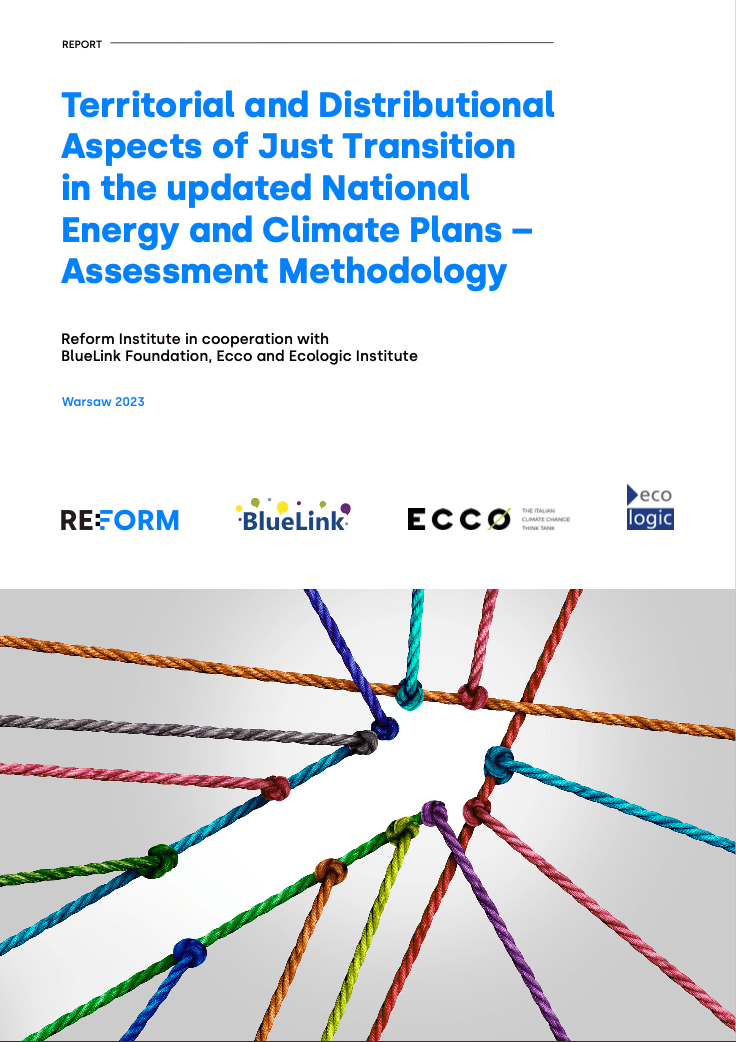
Territorial and Distributional Aspects of Just Transition in the updated National Energy and Climate Plans – Assessment Methodology
Assessment Methodology Report - English version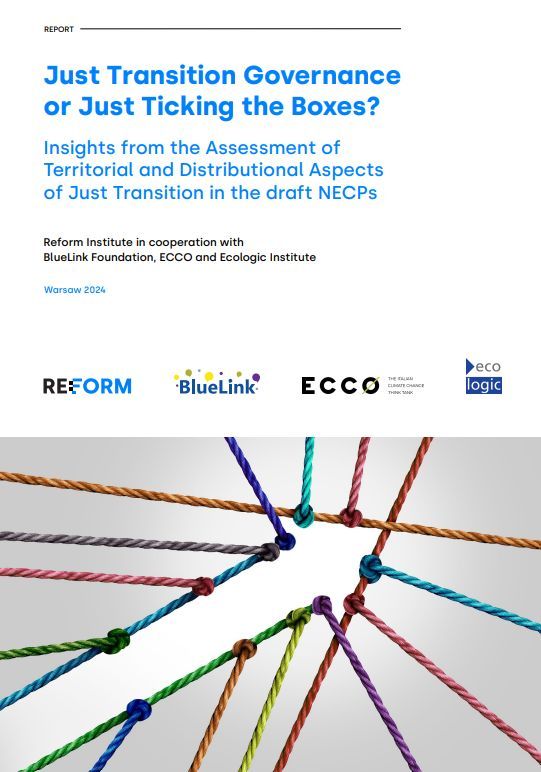
Just Transition Governance or Just Ticking the Boxes?
Insights from the Assessment of Territorial and Distributional Aspects of Just Transition in the draft NECPs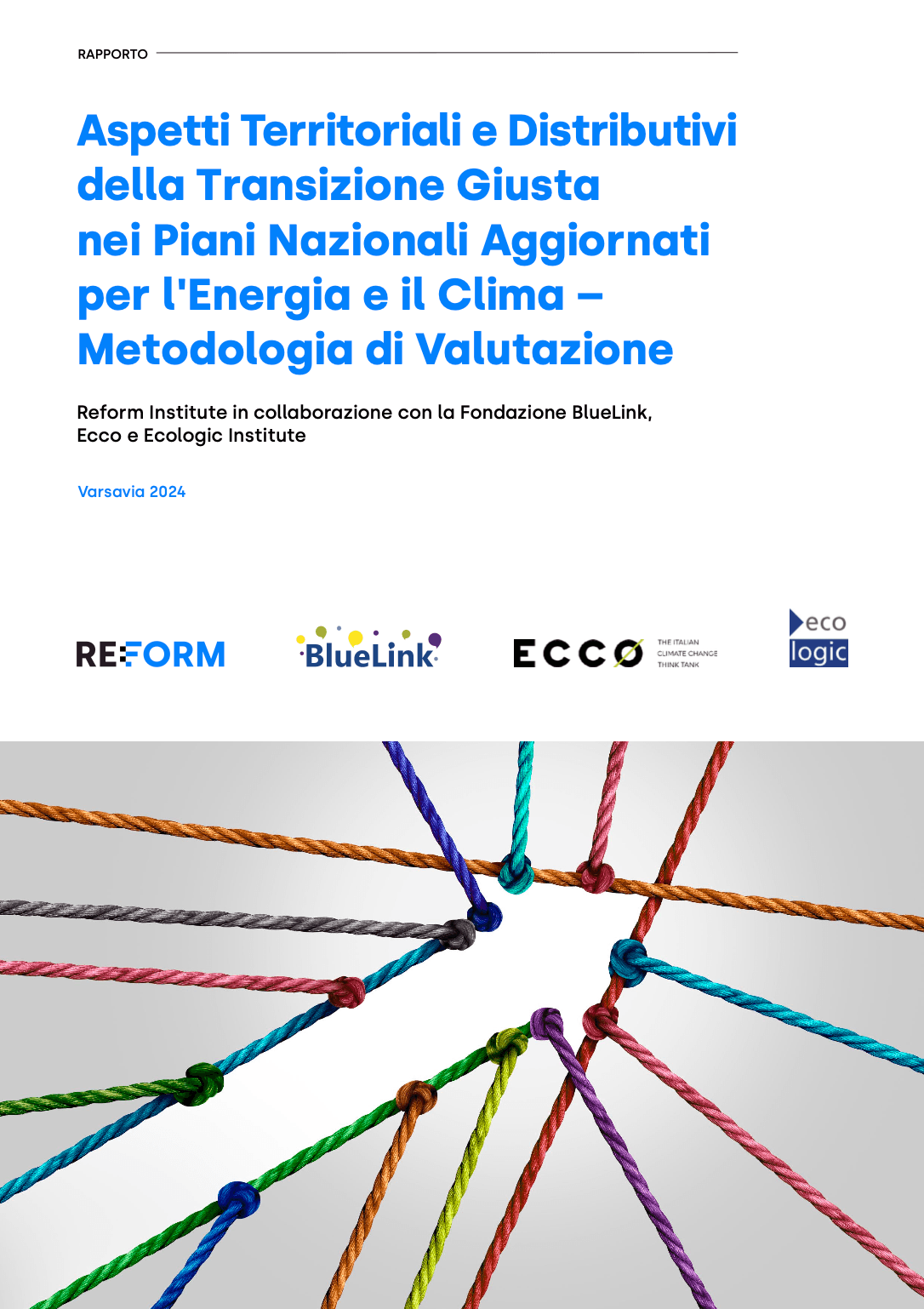
Aspetti Territoriali e Distributivi della Transizione Giusta nei Piani Nazionali Aggiornati per l'Energia e il Clima – Metodologia di Valutazione
Assessment Methodology Report - Italian version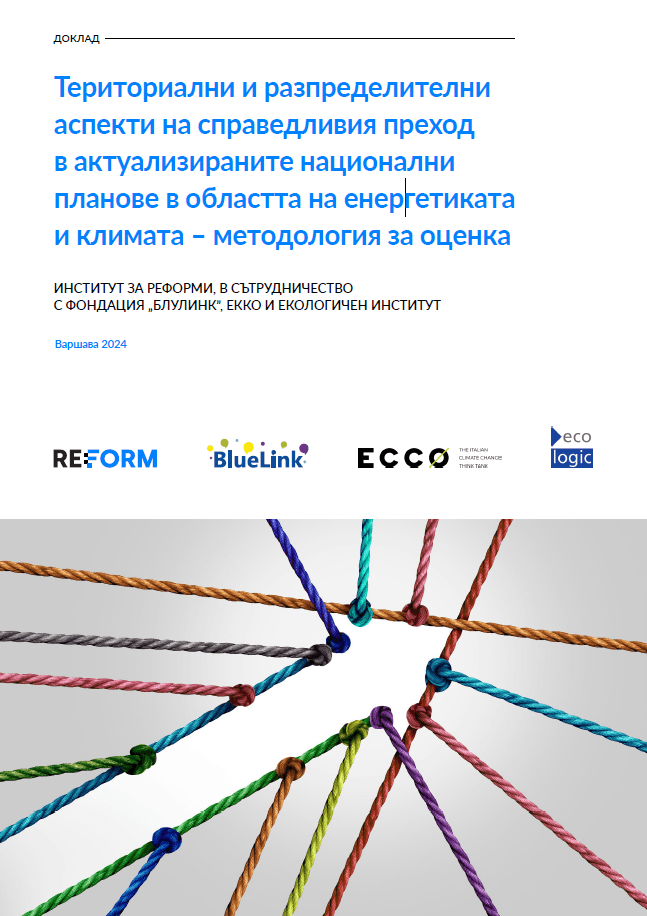
Териториални и разпределителни аспекти на справедливия преход в актуализираните национални планове в областта на енергетиката и климата – методология за оценка
Assessment Methodology Report - Bulgarian version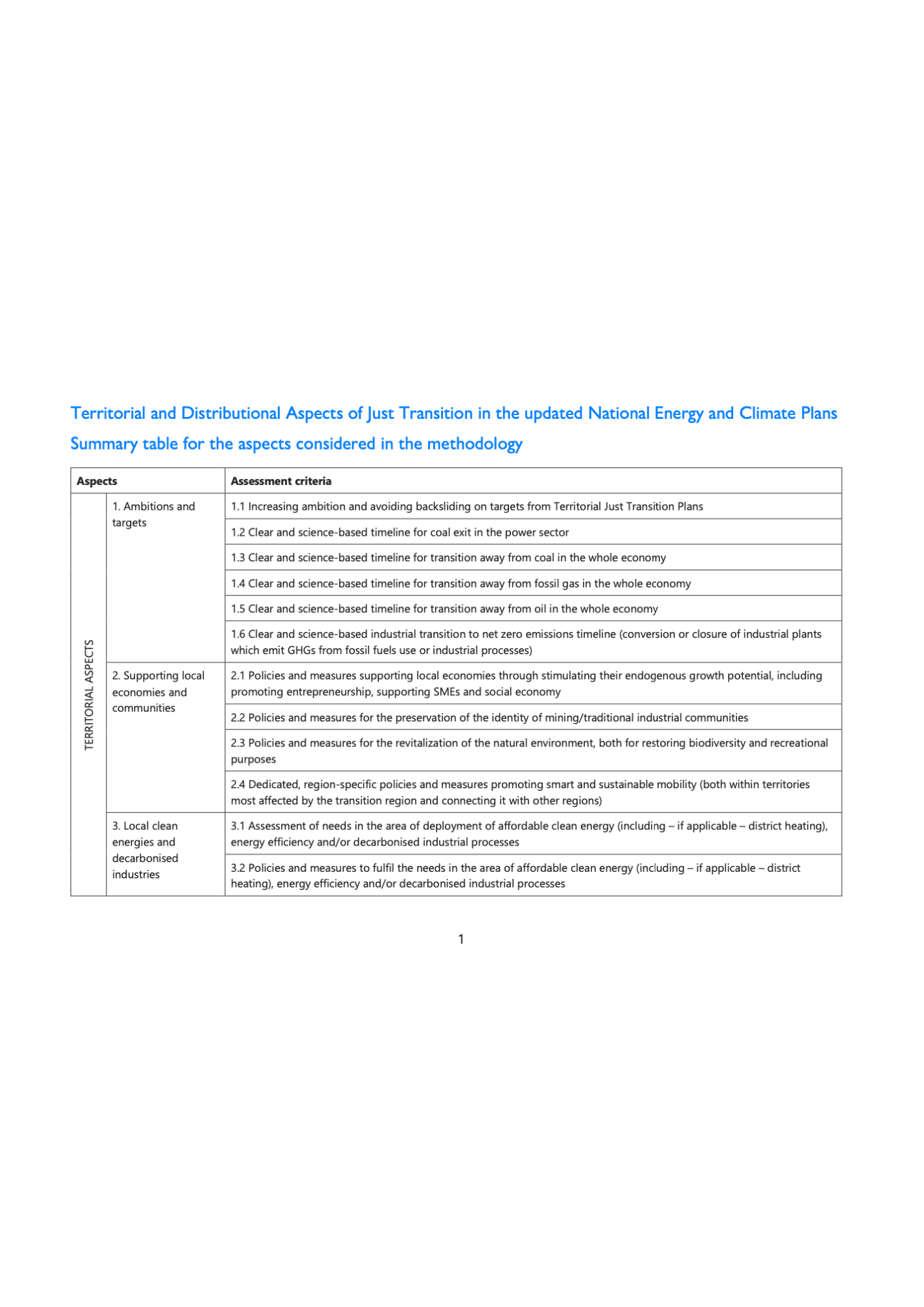
Annex in Editable Format - Assessment Methodology Table
Assessment Methodology Table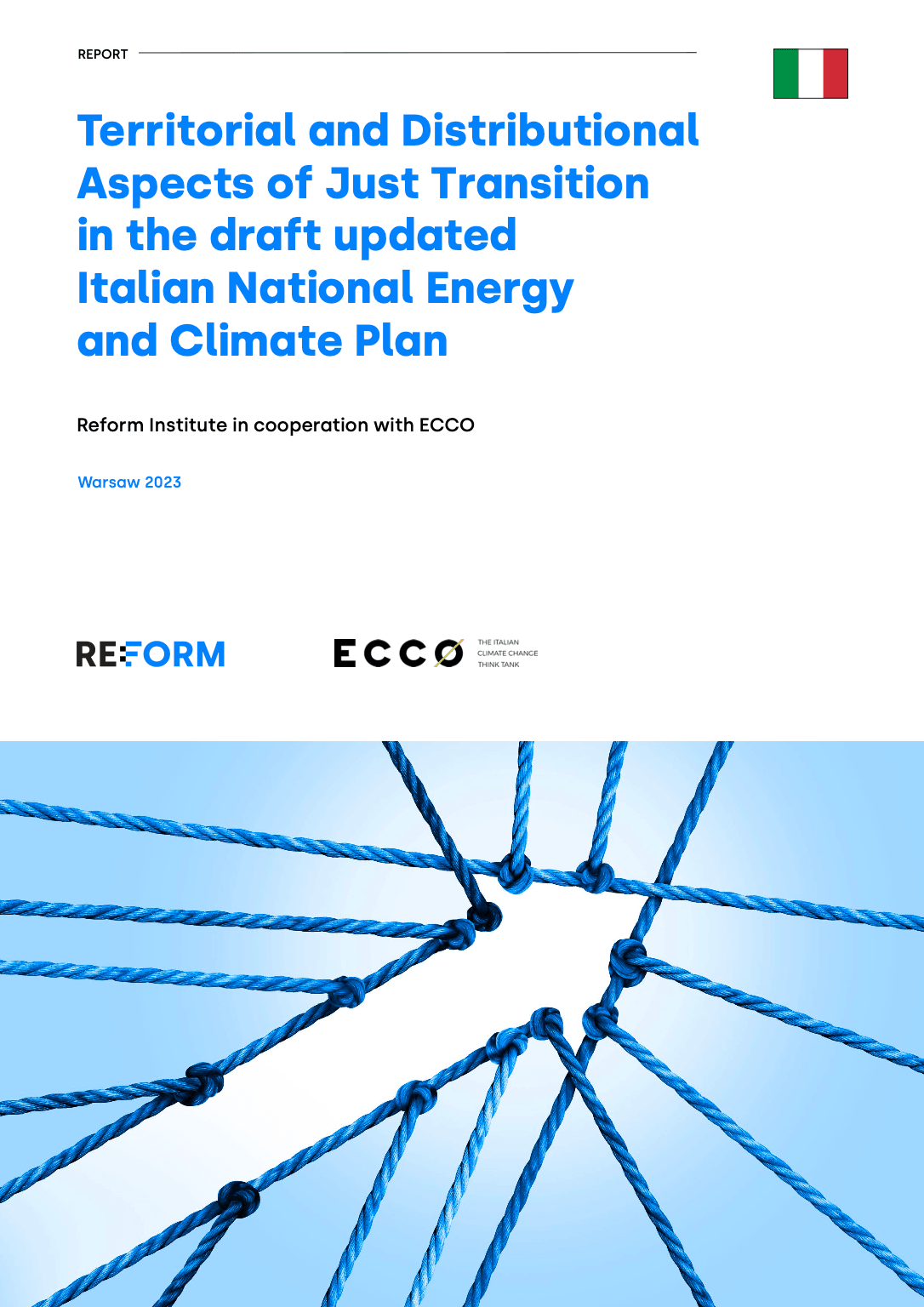
Territorial and Distributional Aspects of Just Transition in the draft updated Italian National Energy and Climate Plan
NECP Italy - Assessment Report in English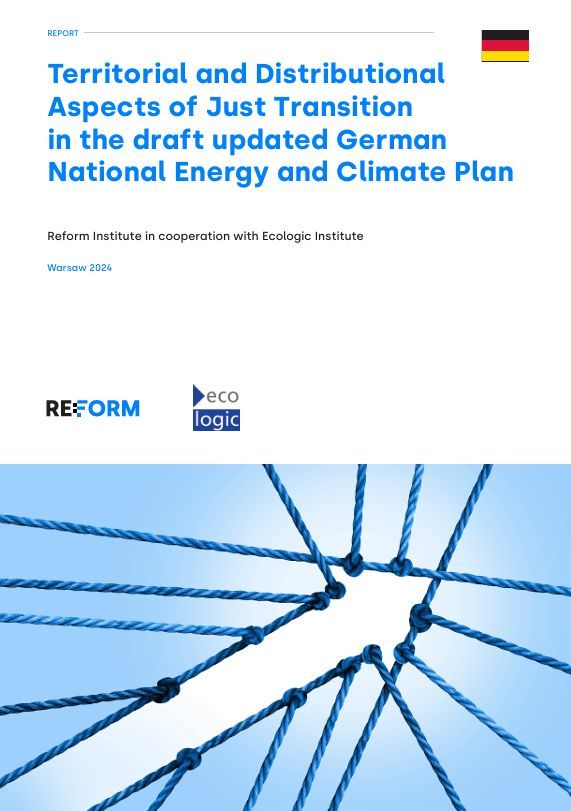
Territorial and Distributional Aspects of Just Transition in the draft updated German National Energy and Climate Plan
NECP Germany - Assessment Report in English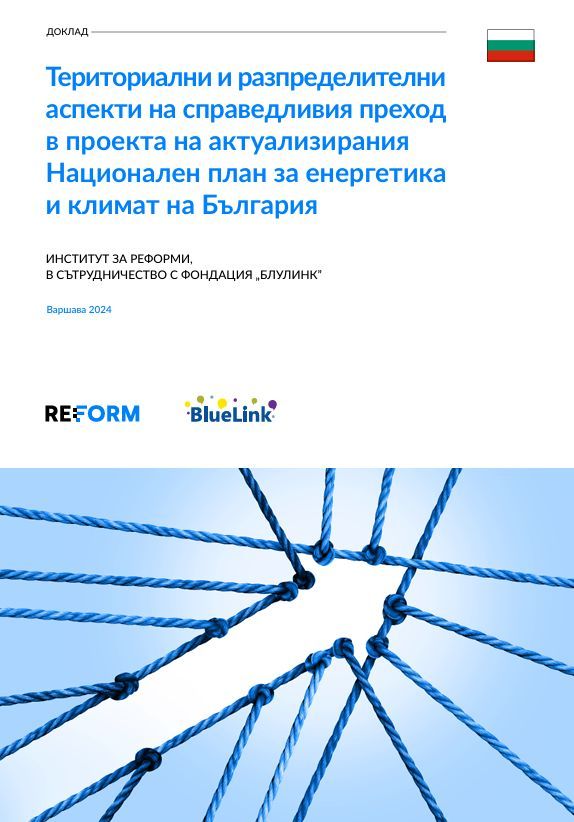
Териториални и разпределителни аспекти на справедливия преход в проекта на актуализирания Национален план за енергетика и климат на България
NECP Bulgary - Assessment Report in Bulgarian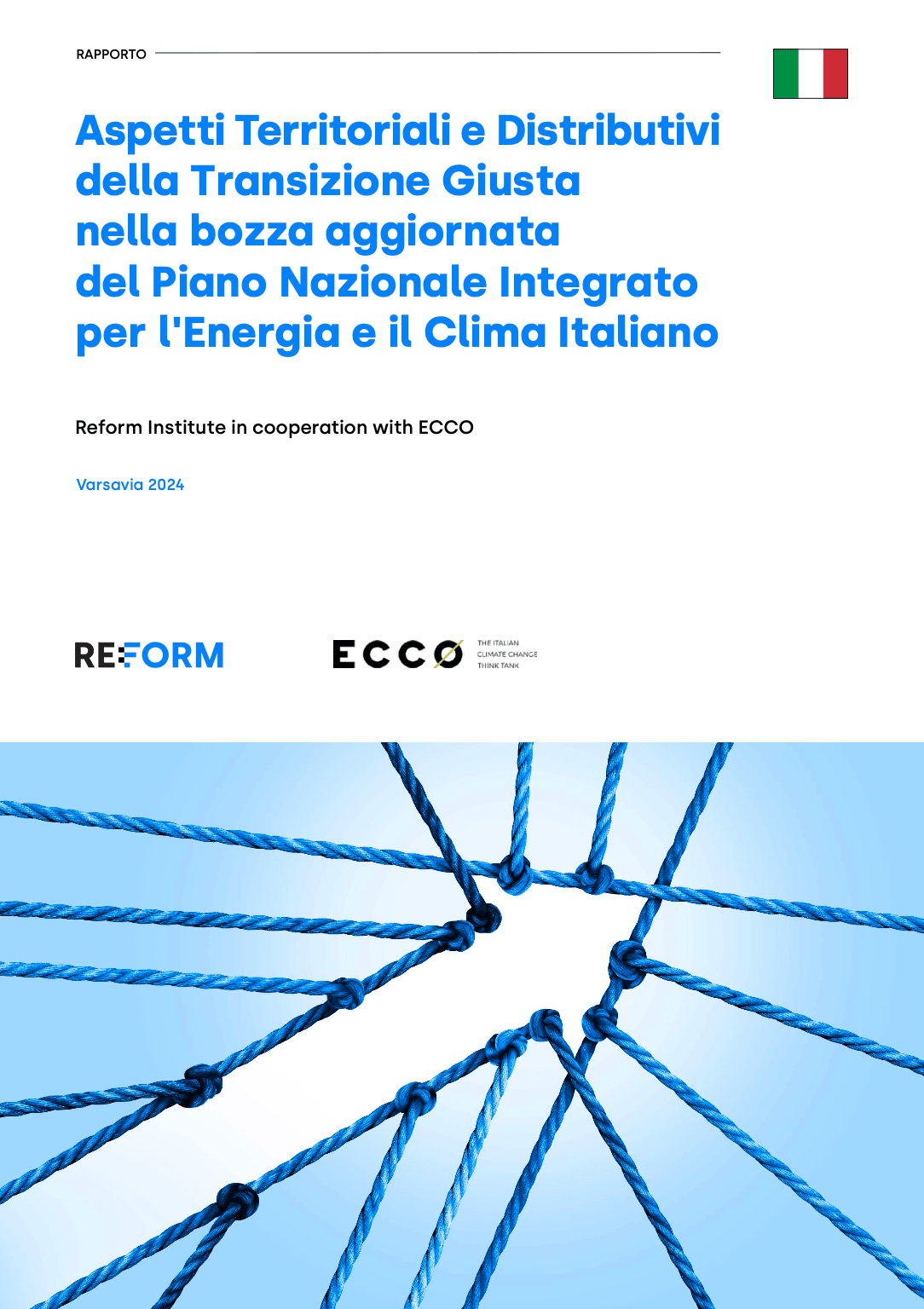
Aspetti Territoriali e Distributivi della Transizione Giusta nella bozza aggiornata del Piano Nazionale Integrato per l'Energia e il Clima Italiano
NECP Italy - Assessment Report in Italian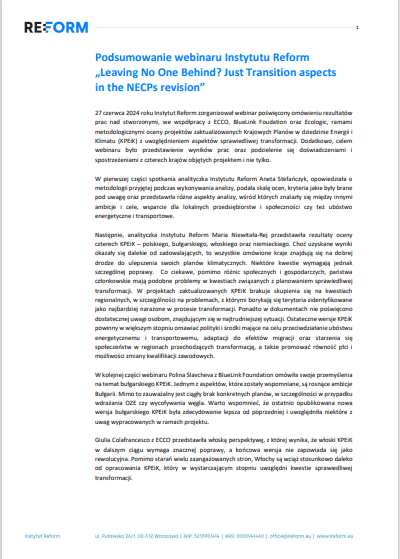
Podsumowanie webinaru "Leaving No One Behind? Just Transition aspects in the NECPs revision”
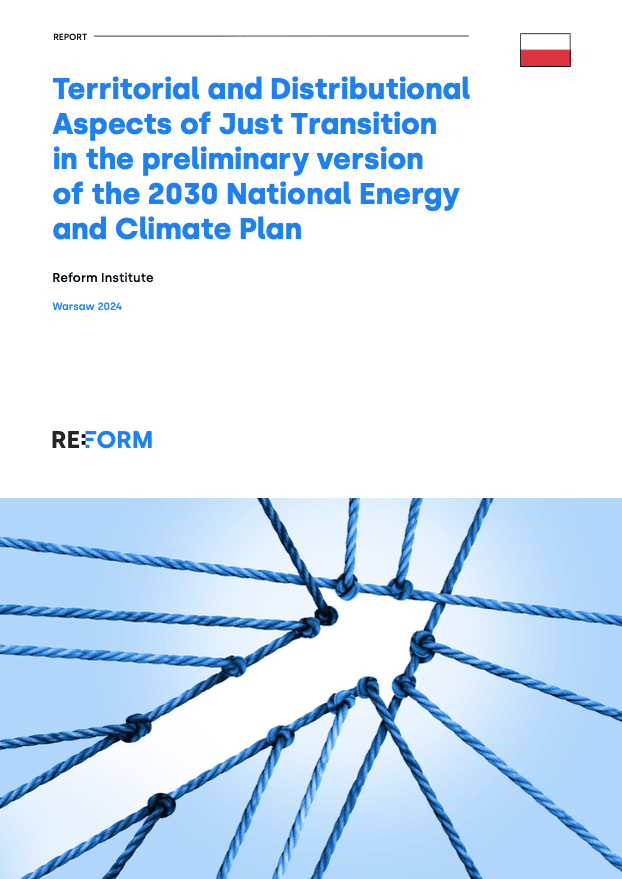
Territorial and Distributional Aspects of Just Transition in the preliminary version of the 2030 National Energy and Climate Plan
NECP Poland - Assessment Report in English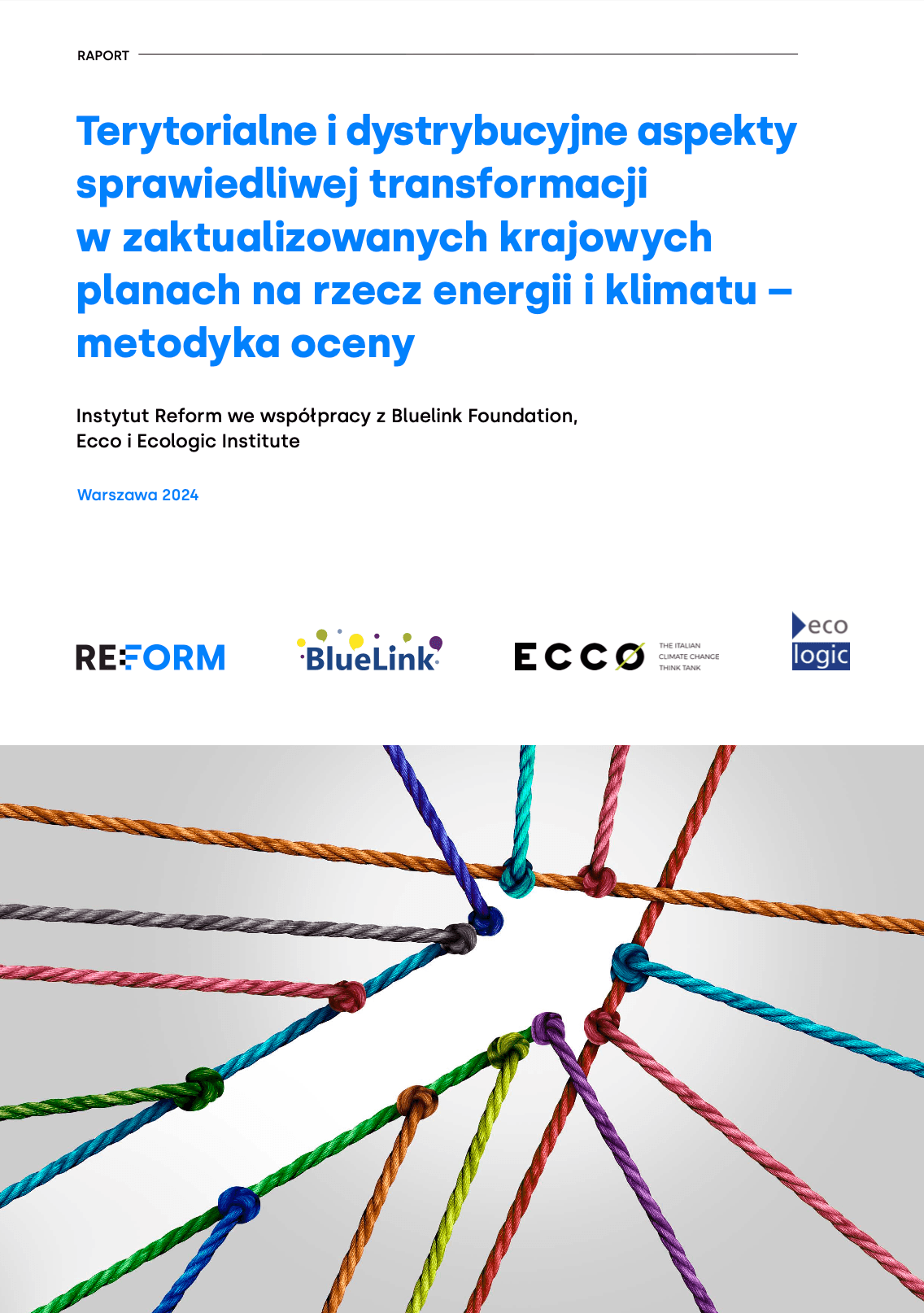
Terytorialne i dystrybucyjne aspekty sprawiedliwej transformacji w zaktualizowanych krajowych planach na rzecz energii i klimatu – metodyka oceny
Raport z metodyką oceny w języku polskim